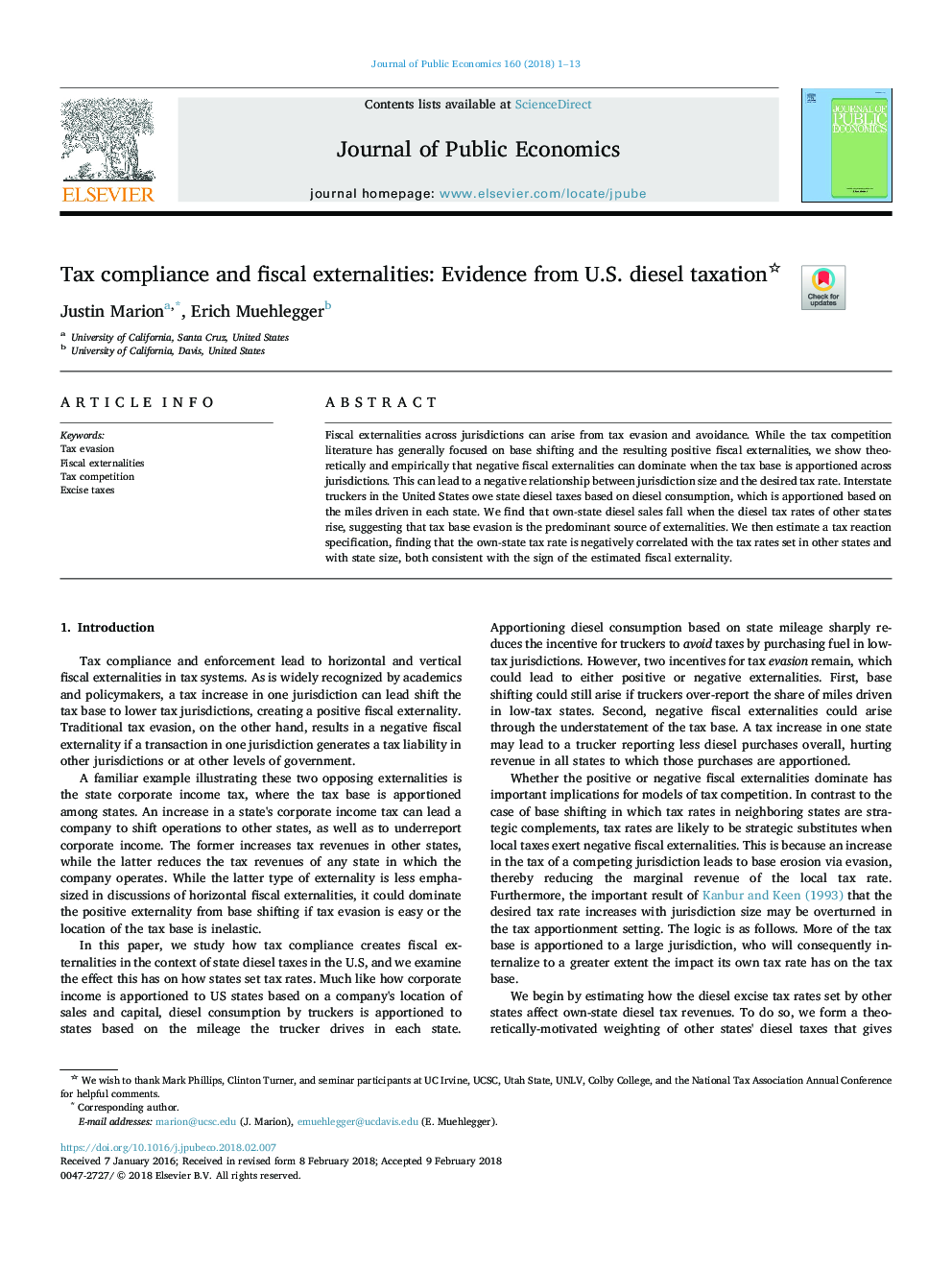| Article ID | Journal | Published Year | Pages | File Type |
|---|---|---|---|---|
| 7369460 | Journal of Public Economics | 2018 | 13 Pages |
Abstract
Fiscal externalities across jurisdictions can arise from tax evasion and avoidance. While the tax competition literature has generally focused on base shifting and the resulting positive fiscal externalities, we show theoretically and empirically that negative fiscal externalities can dominate when the tax base is apportioned across jurisdictions. This can lead to a negative relationship between jurisdiction size and the desired tax rate. Interstate truckers in the United States owe state diesel taxes based on diesel consumption, which is apportioned based on the miles driven in each state. We find that own-state diesel sales fall when the diesel tax rates of other states rise, suggesting that tax base evasion is the predominant source of externalities. We then estimate a tax reaction specification, finding that the own-state tax rate is negatively correlated with the tax rates set in other states and with state size, both consistent with the sign of the estimated fiscal externality.
Related Topics
Social Sciences and Humanities
Economics, Econometrics and Finance
Economics and Econometrics
Authors
Justin Marion, Erich Muehlegger,
